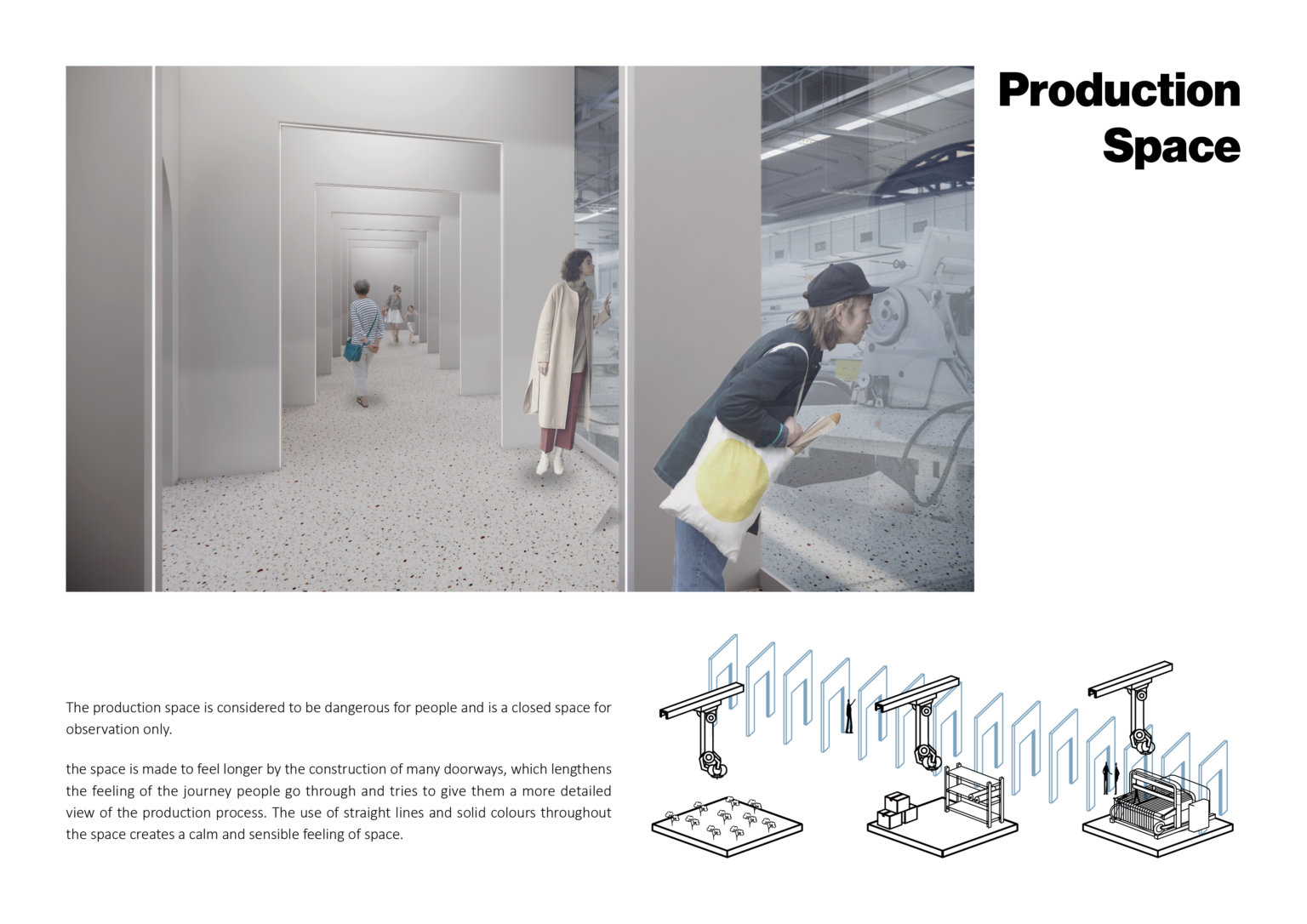Hailin Feng

Interior design is not only about planning spaces, but also about influencing people’s emotions and behaviour through space changes. I believe that designers should not only analyse the design in aesthetics and function but also in terms of ethics, progressiveness and other social aspects. I am interested in how people feel in space. Interdisciplinary learning is also an aspect of interior design that fascinates me, as it not only enriches the space function but also expands the boundaries of interior design. Through the process of experiencing space and the research of its functions, I try to explore the factors that influence people’s behaviour and thoughts. So in my project, I hope to provoke people’s thoughts through interior design.
Projects

Transparent
Today, more people are choosing to shop online because they can buy their favourite products without leaving home, so more businesses are focusing their attention on online promotions.
The development of the Internet has made information accessible and ubiquitous, which has greatly influenced the way we judge everything. The rapid growth of online shopping and Social E-commerce has led people into blind consumption. Huge amounts of advertising are pushed onto the electronics and software that people use on a daily basis. Fast-moving products and efficiency-driven production have made life so fast-paced that it is difficult to stop and think.
People see products packaged in advertising and consume them blindly. The research was used to understand the mindless consumption of people influenced by marketing and to explore the factors that influence people’s behavioural thinking. With the rise of the slow fashion movement, what forms of retail space as a space for ethical thinking can be used to provoke a dialectical critique of things? I try to reconstruct the retail space through the drift theory mentioned in Guy Debord’s book Society of the Spectacle, i.e. the shift towards the environment, the transparency of the production process of retail brands, and the increased consumer involvement, allowing for a shift in the dialectical judgement of consumption and the world.








